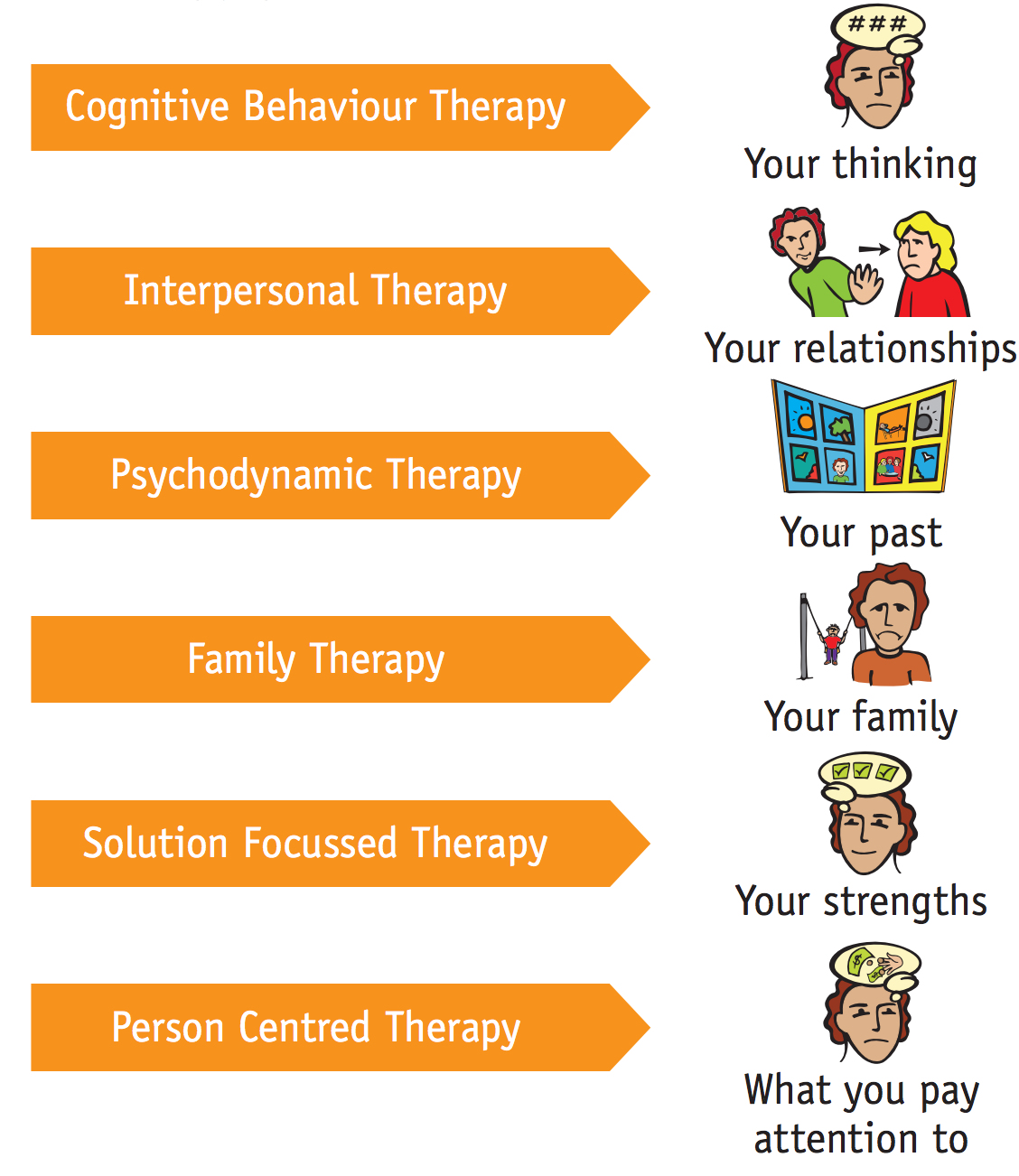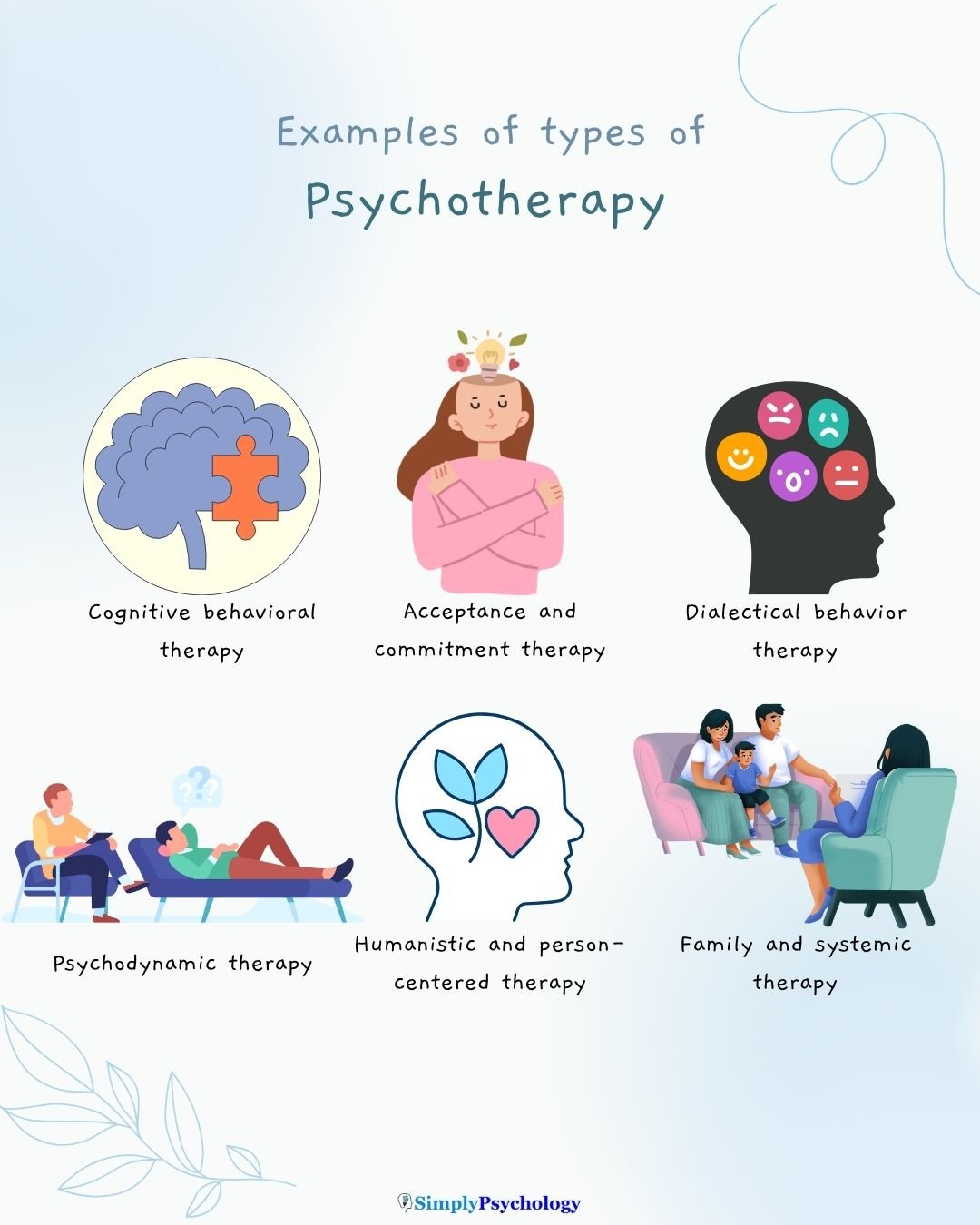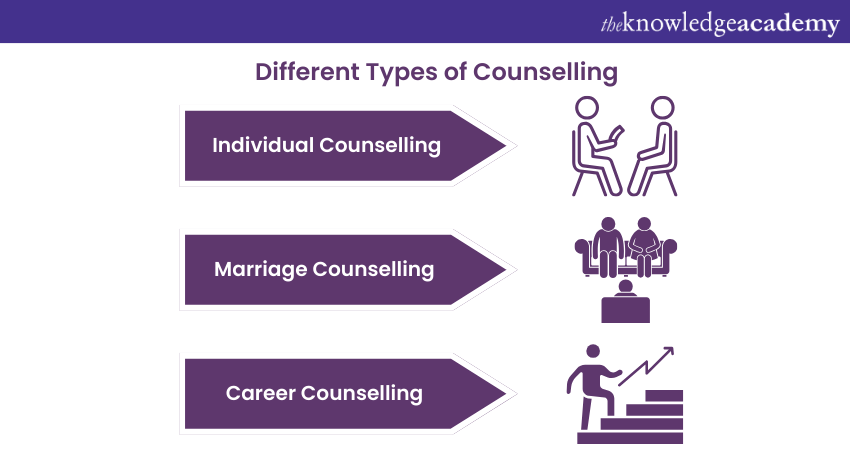A Comprehensive Overview to the Numerous Kinds Of Coaching and Their Influence
Therapy incorporates a range of healing approaches, each developed to satisfy unique psychological health needs. From the structured strategies of Cognitive-Behavioral Treatment to the empathetic nature of Person-Centered Treatment, these techniques provide unique paths to individual growth. Household therapy and Dialectical Actions Therapy supply added frameworks for recovery, while team therapy fosters area assistance. Comprehending these diverse techniques can brighten their profound effect on individual wellness. What stays to be checked out are the ins and outs of each strategy.

Comprehending Cognitive-Behavioral Therapy (CBT)
Although many restorative methods exist, Cognitive-Behavioral Therapy (CBT) stands out as a result of its structured, goal-oriented nature. This form of treatment is based on the property that thoughts, feelings, and habits are adjoined, and by altering adverse idea patterns, people can modify their psychological actions and actions. CBT utilizes various techniques, such as cognitive restructuring, which aids customers recognize and challenge altered beliefs. Behavioral activation encourages involvement in satisfying activities to fight depression.
Typically, CBT is a short-term treatment, typically lasting in between 12 to 20 sessions, making it easily accessible for those looking for fast results. Its efficiency has actually been well-documented in dealing with anxiety conditions, clinical depression, and other psychological health concerns. The specialist's role is to direct customers via exercises and homework tasks, promoting self-awareness and advertising long-lasting coping techniques. This practical technique empowers people to take control of their psychological well-being, ultimately bring about improved life contentment.
Discovering Person-Centered Therapy
Person-Centered Treatment, developed by Carl Rogers, offers a different approach to Cognitive-Behavioral Therapy by highlighting the customer's subjective experience. This healing model prioritizes the individual's viewpoint, promoting a setting of empathy, genuine positive regard, and credibility. By permitting customers to discover their feelings and ideas without judgment, specialists facilitate personal development and self-discovery.
The core tenet of Person-Centered Therapy is the idea that people possess the fundamental capacity for self-healing and individual growth. In this setup, the therapist acts as an encouraging overview rather than a directive authority, encouraging clients to organize their own journey. This technique is particularly efficient for those facing concerns such as reduced self-esteem, anxiety, or depression, as it equips them to face and understand their emotions. Ultimately, Person-Centered Therapy cultivates a solid restorative alliance, cultivating trust and openness vital for purposeful adjustment.
The Duty of Household Therapy in Healing
Family treatment acts as a vital component in the recovery process for individuals and their partnerships. This restorative approach concentrates on boosting communication, resolving problems, and fostering much deeper connections among member of the family. By attending to inefficient characteristics, family treatment motivates each participant to reveal their ideas and sensations in a secure environment, advertising understanding and empathy.

The influence of household therapy prolongs beyond the sessions, as boosted relationships can bring about boosted psychological well-being for all included. On the whole, family treatment plays an important duty in recovery by cultivating unity, durability, and shared assistance amongst relative, eventually directing them towards a much healthier, more meeting life together.
Unpacking Dialectical Behavior Modification (DBT)
Building on the foundation of therapeutic approaches that improve emotional health, Dialectical Behavior modification (DBT) offers an organized framework for individuals having problem with intense emotions and behavior obstacles. Established by Marsha Linehan, DBT incorporates cognitive-behavioral techniques with mindfulness methods, intending to aid clients handle overwhelming sensations and boost interpersonal efficiency.
The therapy is particularly valuable for those diagnosed with Borderline Character Disorder but is additionally applicable to a variety of various other psychological wellness concerns. adhd counselling. DBT contains specific treatment sessions and abilities training teams, concentrating on 4 crucial ability collections: mindfulness, distress resistance, feeling regulation, and social effectiveness
The Benefits of Team Therapy Sessions
While specific treatment provides useful insights, team therapy sessions use one-of-a-kind benefits that can substantially enhance the restorative experience. One important benefit is the feeling of area that arises among individuals. People often discover convenience in sharing their experiences with others encountering similar challenges, cultivating a supportive environment that decreases sensations of seclusion.
Additionally, group sessions urge varied point of views, allowing participants to pick up from each various other's coping strategies and insights. This cumulative knowledge can bring about boosted analytic abilities and a wider understanding of individual problems.
Furthermore, group counseling frequently advertises liability, as participants motivate each other to pursue their objectives and stick to their commitments. The cost-effectiveness of team treatment makes it an obtainable alternative for numerous individuals looking for assistance. Generally, the joint nature of team counseling sessions can greatly improve the healing trip.
Frequently Asked Concerns
What Credentials Do Specialists Required to Exercise Therapy?
Specialists generally require a relevant degree in psychology or counseling, together with monitored scientific experience. Furthermore, they have to acquire suitable licensure or certification to exercise legitimately, guaranteeing adherence to professional standards and honest guidelines.
Just how Do I Select the Right Sort Of Treatment for Me?
Choosing the right sort of treatment entails reviewing personal requirements, checking out different methods, taking into consideration specialist specialties, and looking for recommendations. more info Recognizing individual objectives and preferences can considerably enhance the effectiveness and fulfillment of the therapeutic experience.

Are Online Counseling Procedure as Effective as In-Person Ones?
The efficiency of online therapy sessions compared to in-person ones usually depends on specific preferences and scenarios. Study suggests that both techniques can produce favorable end results, though some may discover higher comfort in face-to-face communications.
How Long Does Counseling Usually Last?

What Should I Anticipate During My Very First Therapy Session?
During the very first counseling session, customers can expect an introduction, conversation of their concerns, facility of objectives, and an overview of the therapy process - couples counselling. This preliminary meeting aims to build connection and warranty comfort